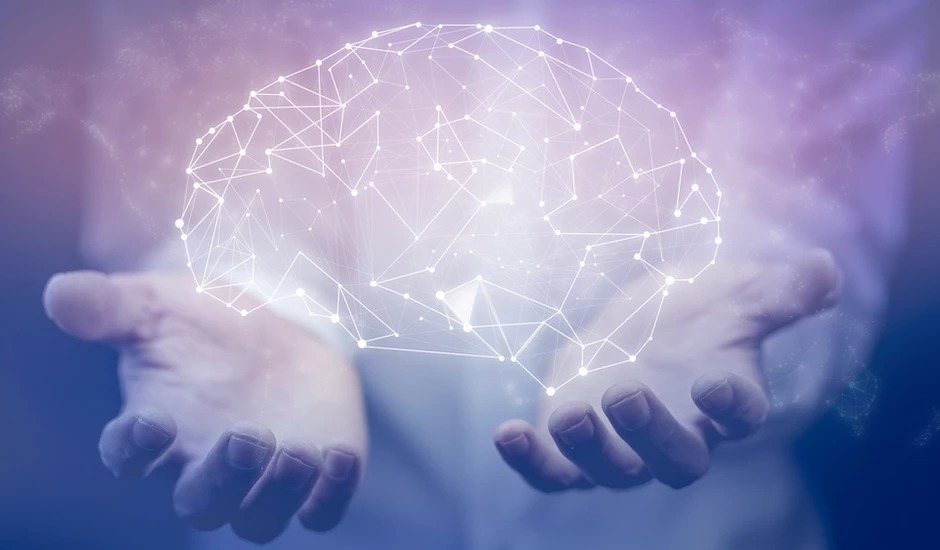What’s the Problem?
Benjamin Fry, NeuralSolution CEO, provides facts why people much more predictable than they could ever imagine and why the problem gambling, at least in casinos, could be a thing of the past. NeuralSolution frightens people that its solution might be able to see more about them than they want to have known. Exclusive interview for Asia Gaming Brief.
Gambling is one of mankind’s oldest pursuits. It has been a pastime and a pleasure for as long as we have records of human civilisation. Ancient Egypt, Rome and China wrestled with the problem of its destructive fringes, regulating and legislating with the same dilemmas that modern governments have today. What is it in the human that drives it to gamble, and why does this largely playful pursuit sometimes become so harmful?
I own a private residential clinic in the UK working in behavioural and mental health. I don’t gamble, and I don’t know much about the industry. But I do know about destructive behaviour. In 2009, I lost everything in the financial downturn and during my resulting nervous breakdown, I was introduced to a whole new generation of knowledge trying to understand my symptoms. I learned about anatomy, neurobiology and the nervous system. And from that I learned about people’s motivations and behaviours in a way which I never imagined possible, even from the lofty heights of having studied physics and philosophy at Oxford. This was new, and it is starting to change the whole landscape of what we think of as so called mental health.
You are much more predictable than you could ever imagine. Your primal engine is run by an accelerator and a brake which are supposed to be your instinctive, evolved response to threat. This is how your ancestors avoided predation. As a modern human, this shows up in how energised or shut down you are. It would be perfect if this would get you revved up when things are dangerous, but let you wind down when it’s time to sleep. But as we all know, that doesn’t always happen. We get out of sync with our environment, getting activated for no reason (we call that anxiety) and shutting down when we should get up (depression). It is all on a continuum, but most of us are to some degree what we would call dysregulated; our nervous systems are not calibrated with our environment.
It’s a simple model; you either need to go up a bit, or down a bit to get the system calibrated just right. When we can’t do this for ourselves, internally, we look for outside ways to do it. Ask yourself, what is the global value of the trades which help us to do this? Just take the alcohol and caffeine businesses alone, and you can see the size of our need to take ourselves up and down. Most of us just need a little help, but some of us are so dysregulated that we need a lot of help, and some need that a lot more often. These people we often call addicts.
Every industry which mankind has ever created in huge volumes has sold an antidote to this dysregulation. Gambling is no different. So, the question for regulators to address isn’t about a moral, or societal norm, or a financial pattern, or personal consequence; it is about neural regulation and how far from selfregulated any individual is when they are playing gambling. It’s possible to do it healthily. We all play at risk. Kids roughhouse. Adults tease each other. Both do dumb stuff on YouTube. Play is how all mammals train their nervous systems to be ready to respond to serious threat. We have evolved to enjoy it. It is good for us and helps us to survive better.
But some of us are not playing. We are creating a genuine risk, because that is what it takes to regulate our nervous systems. These people have entered into a full-bloodied response to threat. They are in fight-or-flight state in their sympathetic nervous system, and, like any mammal responding to threat, they are not going to stop until they are dead or have escaped. In a casino neither outcome is going to happen; they are just going to lose everything instead.
What differentiates these people from those who were just playing at risk is another neural pathway, called the social engagement system. This is the physiological signal which tells us that we are connected. It is the biochemical engineering we are talking about when we say that a person “warms our heart”. It provides the vital context for the more primal drives of the threat response system. It is what makes us human.
So, the only problem regulators face in controlling gambling without eradicating it (like they tried to do in China, Roma and Egypt) is this one of context. Is this citizen only playing at risk, or are they locked into a death spiral with it? That’s all you need to know.
As with so many other technological advances the solution to the problem already exists, just in a different industry. A long-standing dream in mental health work among the clinicians who understand the nervous system has been a kind of ‘nervous-system-ometer’ to give some objective bio-feedback on what the clinician’s already think that they know.
Science fiction became science fact with the development and patenting of a camera-based device to do exactly that. By reading the variations in flow and capillary constriction of blood in the face, these two foundational neural circuits can be deduced and thus behaviour mapped. In theory, all you have to do is point this camera at someone who is gambling and read out if they are playing, or not. They might look the same to the naked eye, but their nervous systems are running completely different programs.
Reading that has taken over 35 years of development in academia but the system is now ready to help people to find safer paths to regulating their own nervous systems, and gambling is one of its first applications.
NeuralSolution is the spin-out of this work and it frightens people that we might be able to see more about them than they want to have known. Certainly, there are many valid regulatory and privacy concerns raised. This technology should only be used for good, and only where consent is at the very least implicitly given, one reason why casinos are a good application of the technology; people accept surveillance as routine and that behaviour needs to be normalised.
Nonetheless, there will doubtless be some very interesting debates ahead, nowhere more so perhaps than in Japan, where the scale of ambition for new resorts is matched only by the concern of the government, regulators and public over the problems that these could introduce into Japanese society.
Fortunately, there is no such thing as problem gambling. Gambling is something that is played at. When it is not, it is not gambling; it is survival. It is all just a matter of neural context. Fortunately, we can now read the difference between the two, and so we can support those individuals who are struggling into better strategies for nervous system regulation. Problem gambling, at least in casinos, could be a thing of the past.

About the Author
Benjamin Fry, NeuralSolution CEO, is the founder of Khiron House and the not-for-profit Get Stable. Both are innovative companies in the UK working in mental and behavioural health. He studied Physics and Philosophy at Oxford, has an MBA from Oxford Said and a MA in Psychotherapy and Counselling. He is also a published author and experienced television presenter
